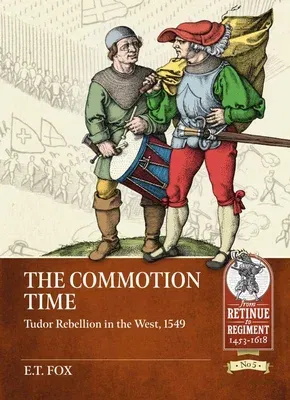E T Fox
(Author)The Commotion Time: Tudor Rebellion in the West, 1549Paperback, 17 September 2020

Qty
1
Turbo
Ships in 2 - 3 days
Only 5 left
Free Delivery
Cash on Delivery
15 Days
Free Returns
Secure Checkout

Part of Series
From Retinue to Regiment
Print Length
230 pages
Language
English
Publisher
Helion & Company
Date Published
17 Sep 2020
ISBN-10
1913118797
ISBN-13
9781913118792
Description
Product Details
Author:
Book Format:
Paperback
Country of Origin:
US
Date Published:
17 September 2020
Dimensions:
24.64 x
18.03 x
1.27 cm
ISBN-10:
1913118797
ISBN-13:
9781913118792
Language:
English
Pages:
230
Publisher:
Series:
Weight:
566.99 gm